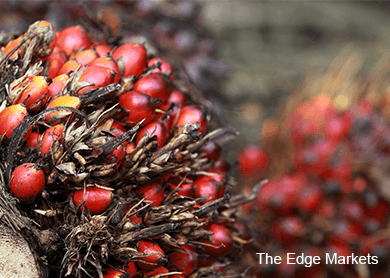
Plantation sector
Maintain neutral: The Financial Daily reported that Indonesia plans to reduce its crude palm oil (CPO) export tax to help offset the cost burden for companies from a plan to impose separate export levies.
Earlier this month, the Indonesian government said it would issue a regulation requiring exporters to pay a levy of US$50 (RM178) on every tonne of CPO exported and US$30 for processed palm oil product exports to fund new biodiesel subsidies. The government now intends to cut the export tax rate. It mentioned that the current tariff will be adjusted so that the sum companies pay would not be too high. The export tax currently ranges from 7.5% to 22.5%, depending on benchmark palm oil prices. It added that the government will not change the price threshold for the tax, which only takes effect when prices rise above US$750 per tonne.
However, the US$50 per tonne levy is yet to be confirmed. As of yesterday, we understand that the US$50 per tonne levy is yet to be approved by the Indonesian government. Thus, we expect Indonesia’s zero-tax policy to be intact going into early-May, matching Malaysia’s own 0% export tax rate for May 2015. This is in line with our expectations as CPO prices have been trading at around US$600 per tonne, far below the US$750 per tonne CPO price threshold for export tax.
If the levy is approved, there will be two outcomes for Indonesian planters: i) when the CPO price is below US$750 per tonne, the export tax will be flat at US$50 per tonne, implying a heavier margin squeeze on Indonesian CPO exporters which will result in them retaining more CPO for domestic usage; and ii) when the CPO price is at or above US$750 per tonne, the Indonesian government intends to lower the current export tax structure, which we expect to remain at a minimum of US$50 equivalent.
We believe the US$50 per tonne levy represents a tax “floor” because the taxes collected through levy and export taxes are to be utilised for biodiesel subsidies. Hence, we think Indonesia could only revise down the tax structure starting rate to 6.7% versus the current 7.5% at the CPO price of US$750 per tonne in order to maintain at least US$50 per tonne of tax collected.
We expect the proposed Indonesian CPO levy to be approved after mid-May. We think the levy could strongly restrict Indonesian exports going forward, especially as CPO prices decline. Hence, we believe the Indonesian levy will be positive for Malaysian CPO exports.
We think the imposition of the US$50 per tonne levy will have a major impact on Indonesian downstream players, particularly PPB Group Bhd (market perform; target price [TP]: RM15.42) which may benefit due to its 18% eposure to Wilmar International Ltd which operates about 25 refineries in Indonesia. Note that most of the other planters under our coverage do not have significant exposure to the Indonesian downstream industry. With regard to export taxes, although lower export taxes imply lower profit margins for local downstream players, given current CPO prices of US$600 per tonne, we believe the minimum tax tier of US$750 per tonne is unlikely to be triggered in the near to mid term.
Thus, should the levy be approved, we think the positive benefit to Wilmar’s refining margins should outweigh potentially lower export tax rates. However, we reiterate our call/TP on PPB as we refrain from incorporating the proposed levy in our forecasts until the policy is officially approved.
We retain our neutral stance on plantations with an unchanged financial year 2015 estimated CPO forecast of RM2,200 per tonne. In the current situation, zero CPO export taxes in both Malaysia and Indonesia could result in temporarily weak CPO prices due to higher CPO supply.
Once the levy is finalised, we think that the resulting lower CPO supply from Indonesia should be positive for Malaysian CPO exports and could be beneficial for local CPO prices. Nevertheless, we think the CPO price upside is capped by rising supplies of competing vegetable oils. However, downside is also limited as we believe weaker CPO prices are already priced into planters’ share prices. — Kenanga Research, April 28
This article first appeared in The Edge Financial Daily, on April 29, 2015.